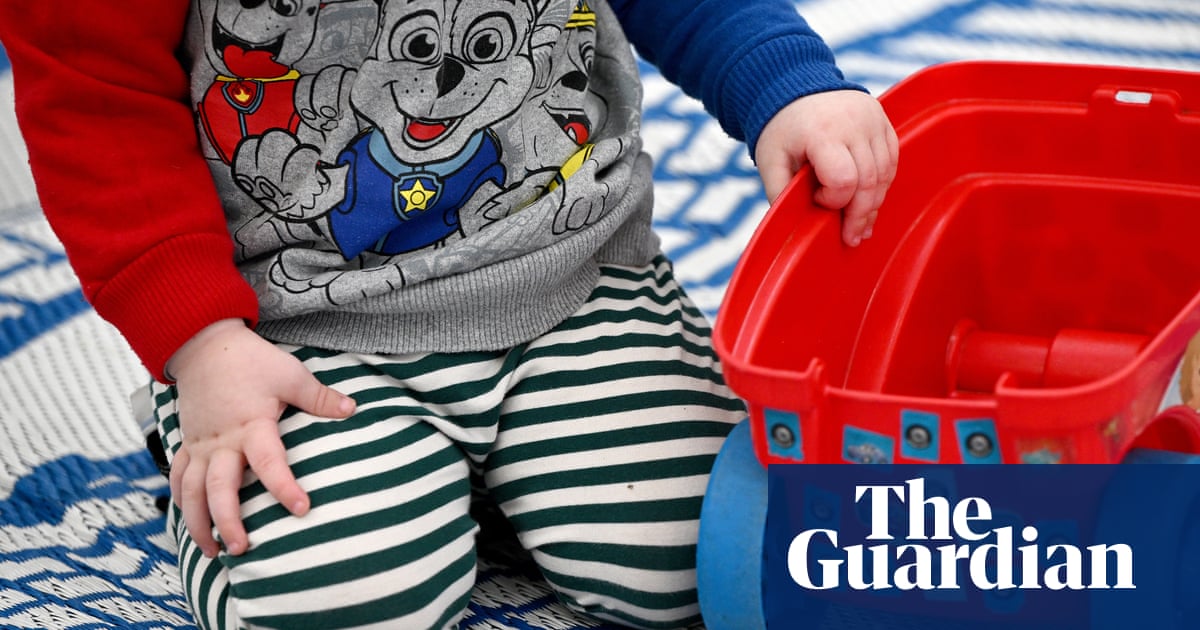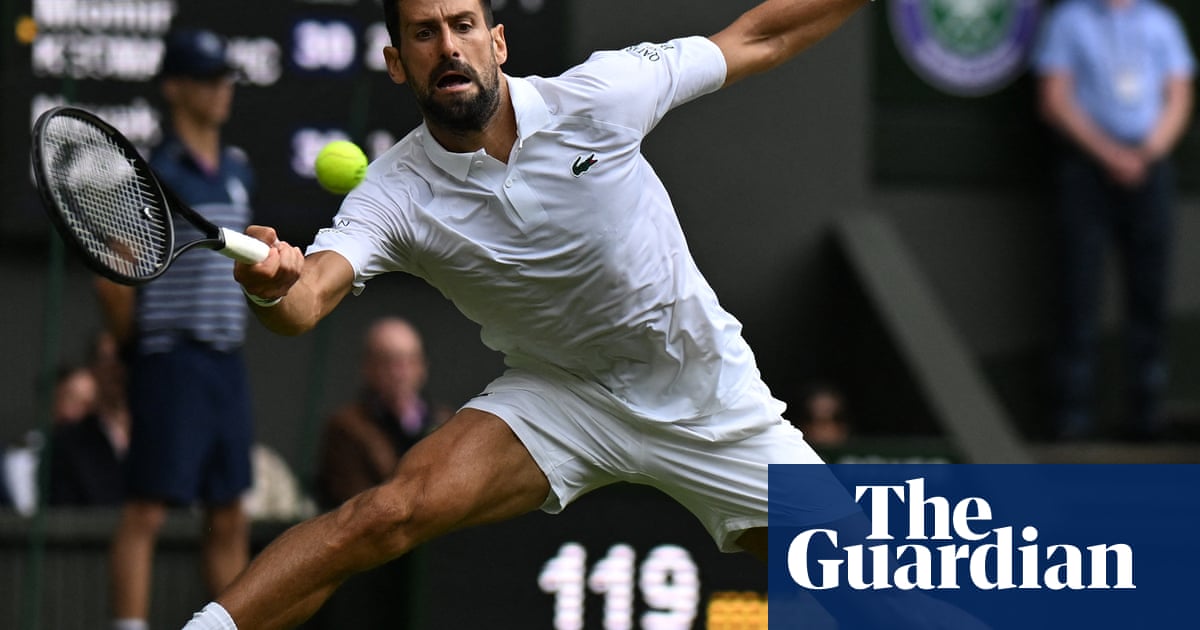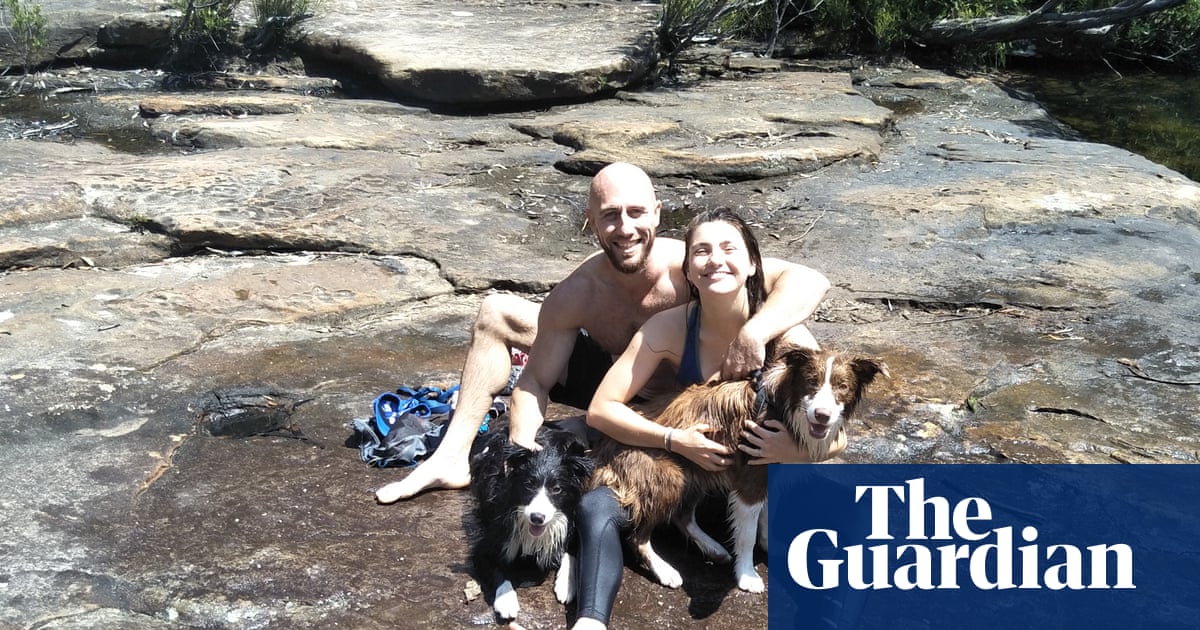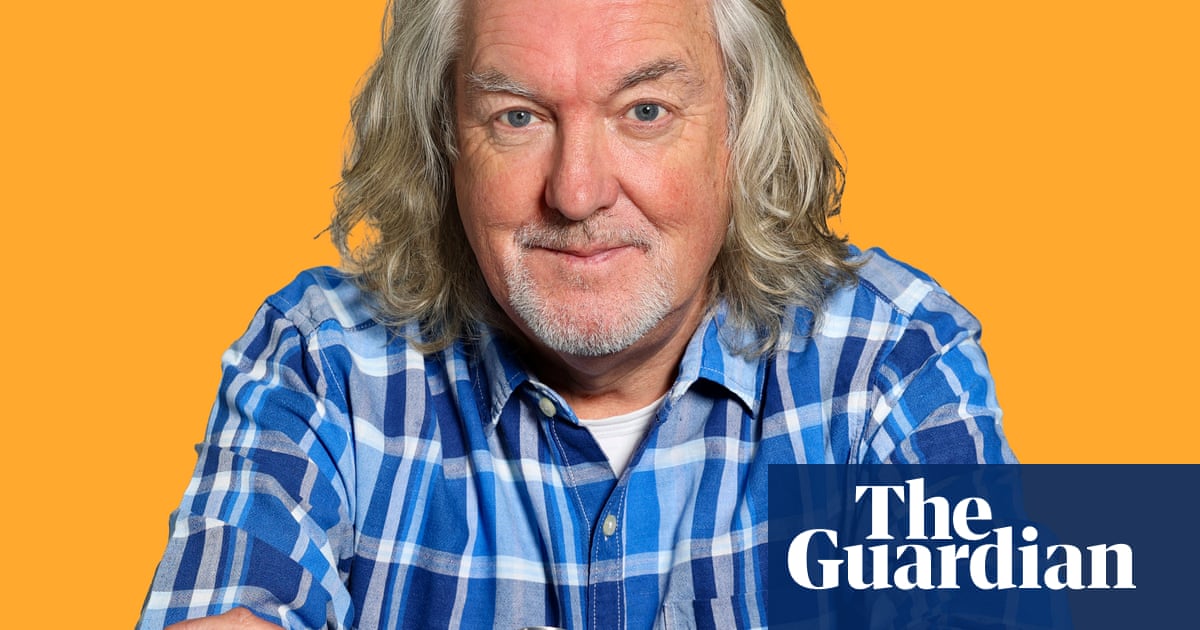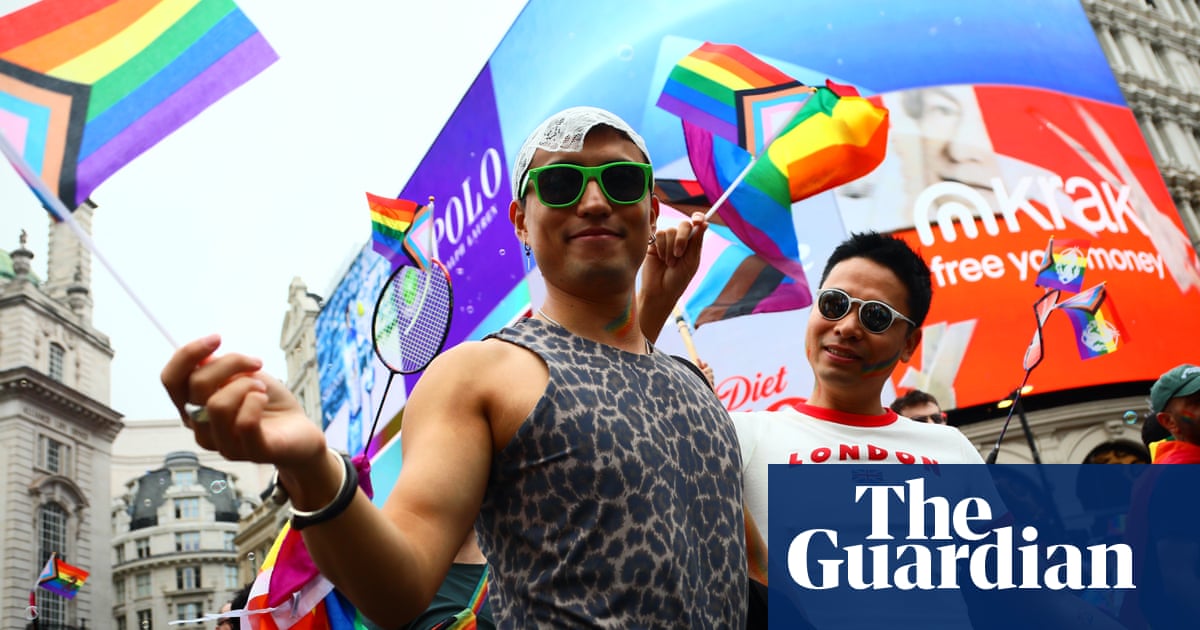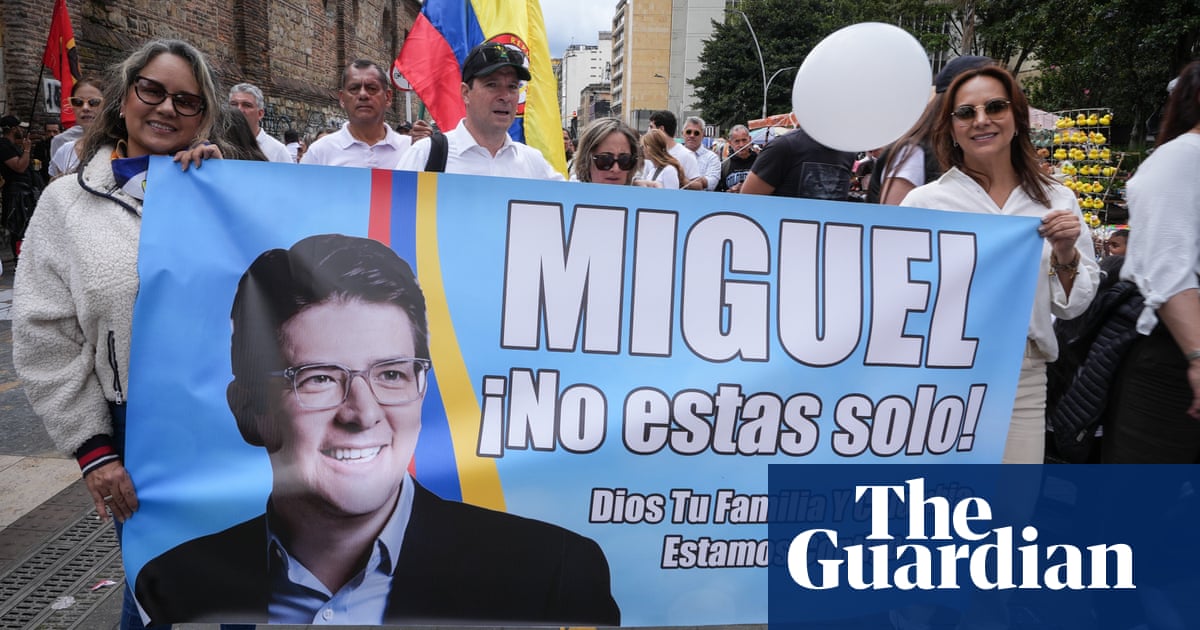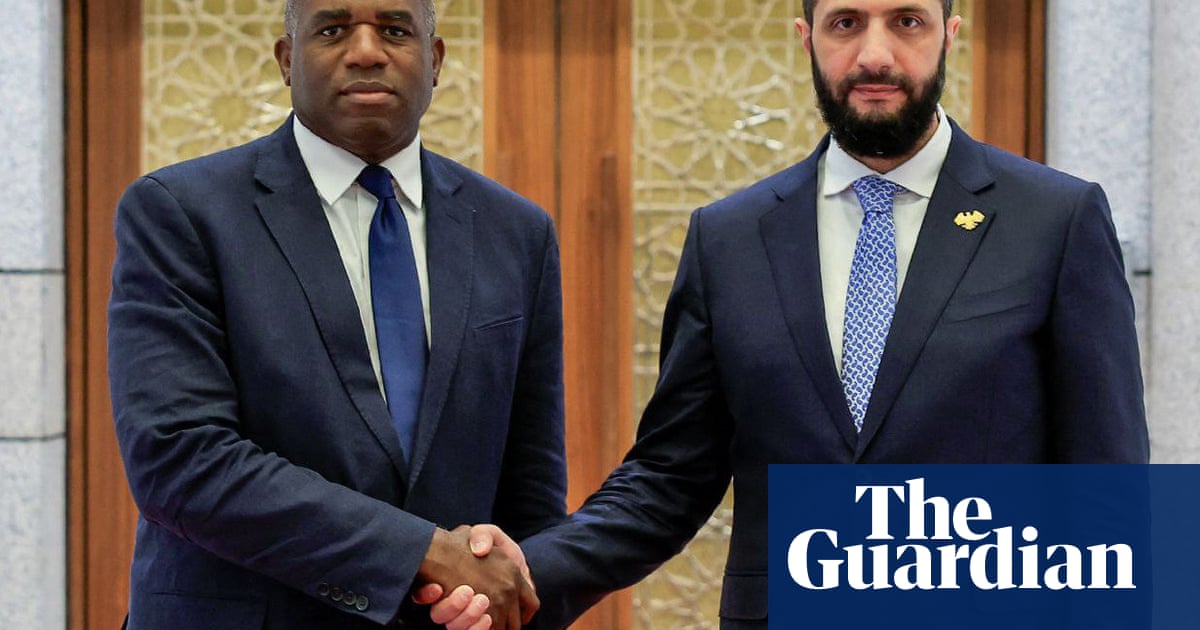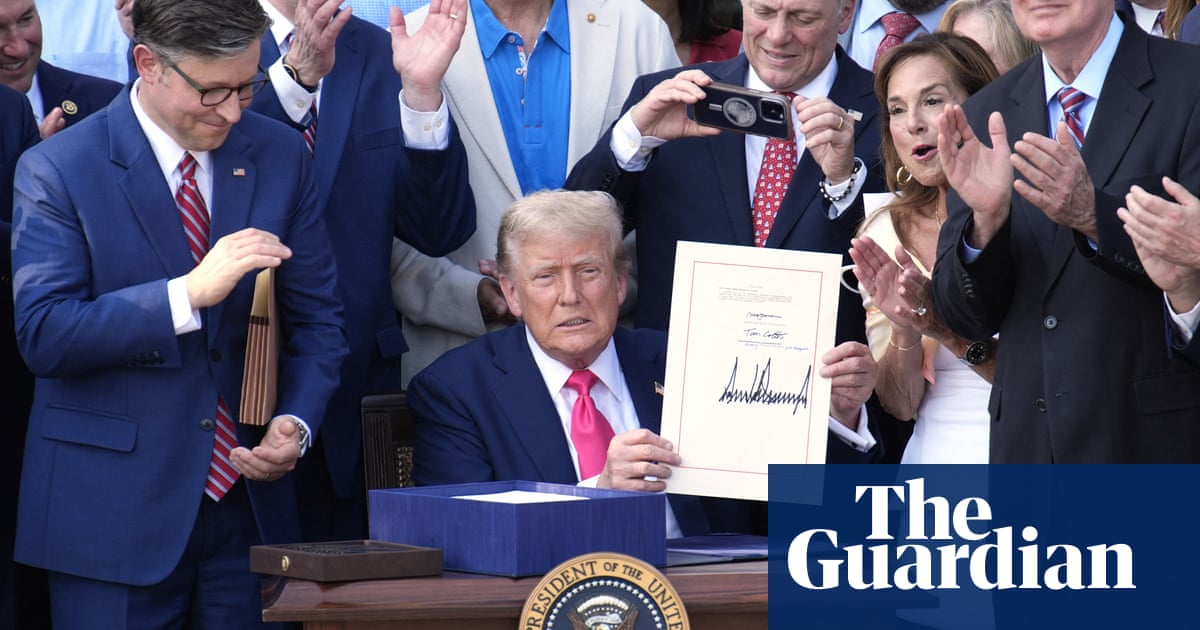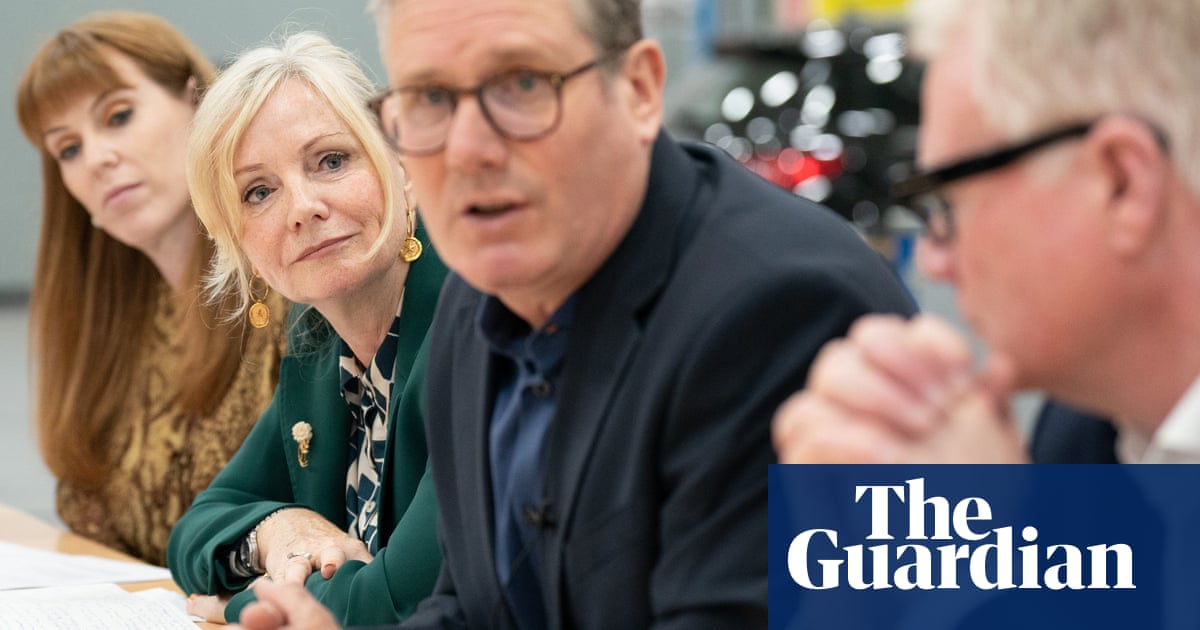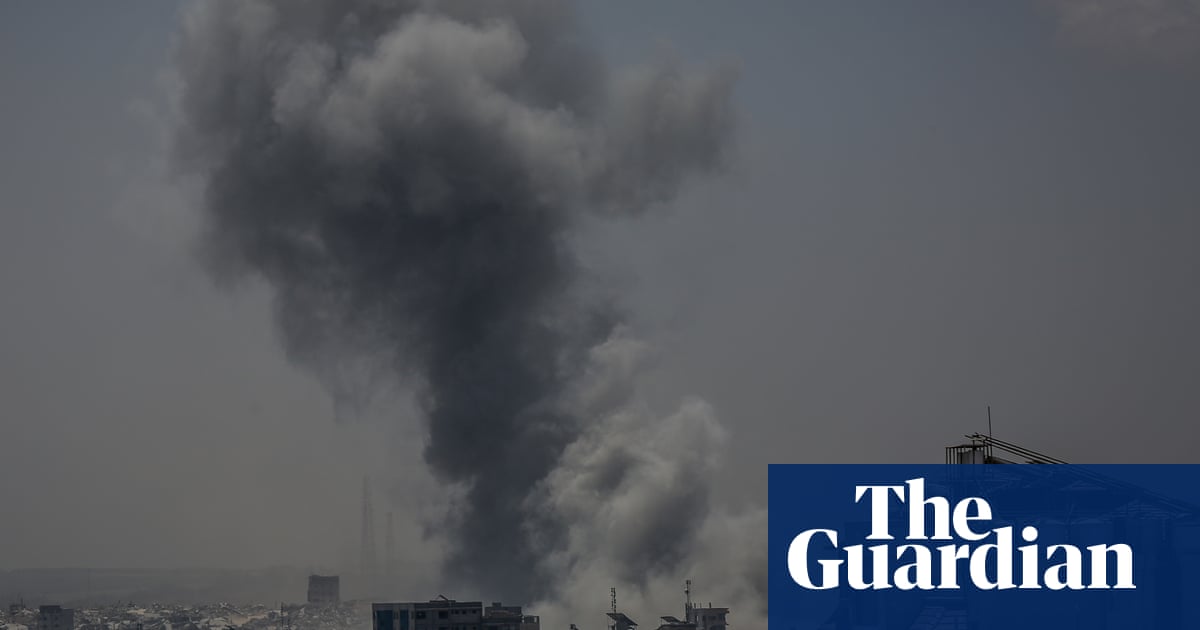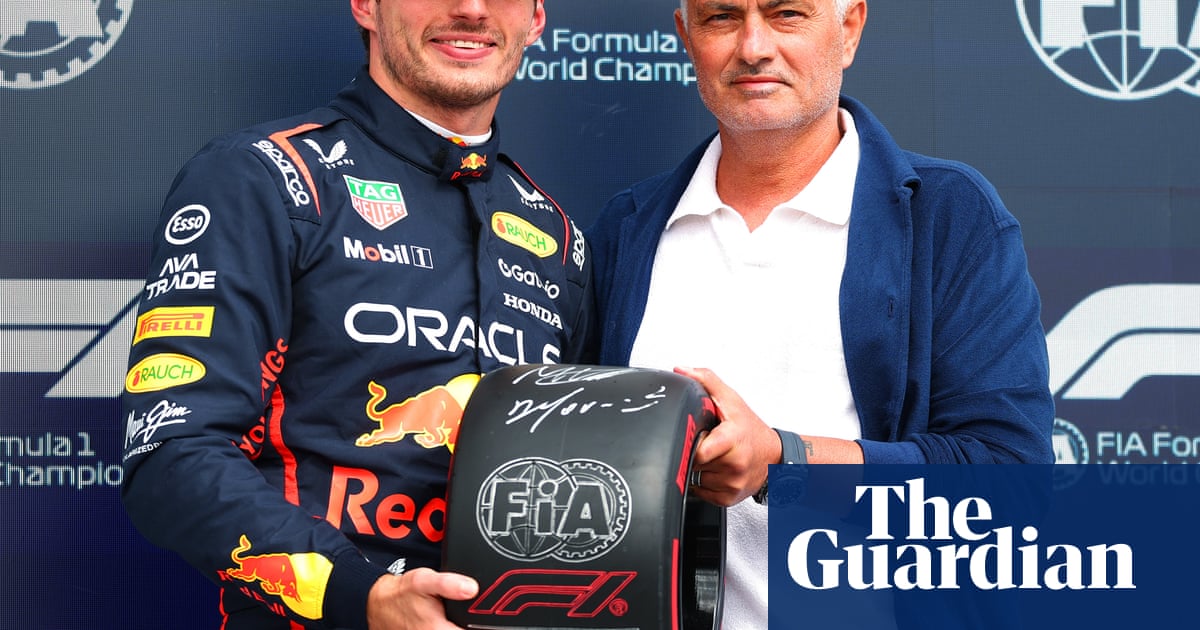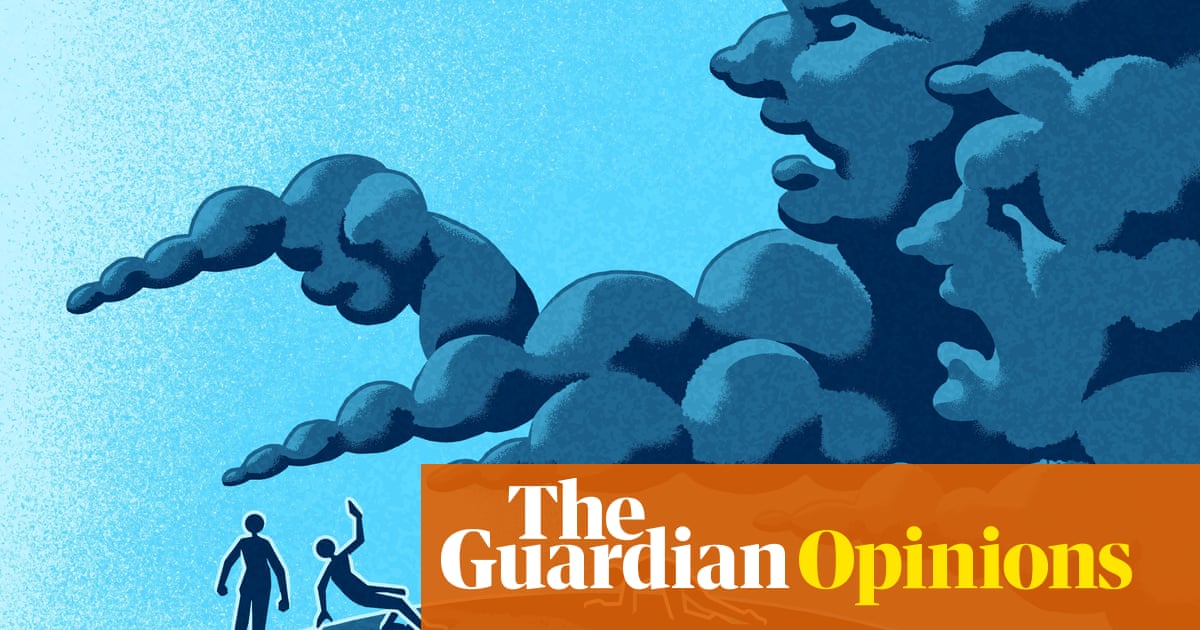Trump to meet El Salvador president at White House amid backlash over deportations
Donald Trump is due to meet El Salvador president Nayib Bukele at the White House on Monday with the small Central American country having become a focus of the US administration’s mass deportation operation.
Since March, El Salvador has accepted from the US more than 200 Venezuelan immigrants – whom Trump administration officials have accused of gang activity and violent crimes – and placed them inside the country’s notorious maximum-security gang prison just outside the capital, San Salvador, called Cecot, an acronym for Terrorism Confinement Centre in Spanish.
That has made Bukele, the most powerful leader in El Salvador’s modern history, a vital ally for the Trump administration, which has offered little evidence for its claims that the Venezuelan immigrants were gang members, nor has it released names of those deported.
Bukele won a decisive victory in elections last year after voters cast aside concerns about erosion of democracy to reward him for a fierce gang crackdown that transformed security in El Salvador. The alliance between Trump and Bukele “has become an example for security and prosperity in our hemisphere”, the US secretary of state, Marco Rubio, said yesterday. Trump told reporters he thought Bukele was doing a “fantastic job” and “taking care of a lot of problems that we have that we really wouldn’t be able to take care of from a cost standpoint”.

US officials said in court filings on Sunday that they were not obliged to help a Maryland resident get out of prison in El Salvador after he was erroneously deported, despite a supreme court ruling directing the government to “facilitate” his return to the US.
Attorneys for the Trump administration said the high court’s order to “facilitate” the return of Kilmar Abrego García, 29, meant they should “remove any domestic obstacles that would otherwise impede the alien’s ability to return here”, not help extract him from El Salvador.
The Trump administration has acknowledged that García, a Salvadoran migrant who was living in Maryland and has had a work permit since 2019, was deported in March in violation of an immigration judge’s order blocking his removal to El Salvador.
The White House has admitted that Garcia was deported due to an “administrative error”’. He was one of the 238 Venezuelans and 23 Salvadorans the Trump administration has deported to Cecot – which houses both convicted criminals and those still going through El Salvador’s court system – under an agreement between the two countries.
The case highlights the administration’s tensions with federal courts. Several have blocked Trump policies, and judges have expressed frustration with administration efforts – or lack of them – to comply with court orders.
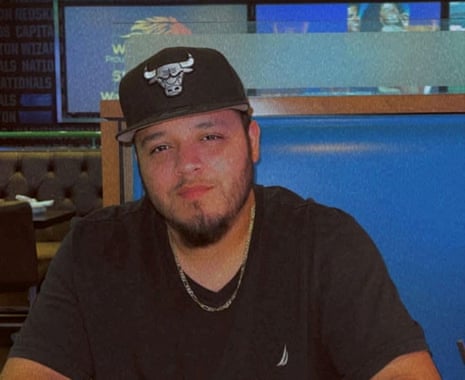
Bukele’s visit comes days after the US deported 10 more people to El Salvador.
Key events Show key events only Please turn on JavaScript to use this feature
Donald Trump will meet this morning with El Salvador’s president, Nayib Bukele, at 11am ET at the White House.
Referring to the cost of imprisoning the detainees in El Salvador, Trump told reporters on Sunday about Bukele:
I think he’s doing a fantastic job, and he’s taking care of a lot of problems that we have that we really wouldn’t be able to take care of from a cost standpoint.
He’s been amazing. We have some very bad people in that prison. People that should have never have been allowed into our country. People that murdered, drug dealers, some of the worst people on earth are in that prison. And he’s able to do that.
Pressed on whether he had concerns about alleged human rights abuses at the mega-prison, Trump said no. I don’t see it. I don’t see that,” he said.
The US on Saturday deported 10 more people it alleges are gang members to El Salvador, said secretary of state Marco Rubio, who called the alliance between Trump and Bukele “an example for security and prosperity in our hemisphere”.
Lawyers and relatives of the people held in El Salvador say they are not gang members and had no opportunity to contest the US government assertion that they were. The Trump administration says it vetted migrants to ensure they belonged to Tren de Aragua, which it labels a terrorist organization.
After the Trump administration erroneously deported Kilmar Abrego Garcia, a 29-year-old Salvadoran migrant who was living in Maryland and has had a work permit since 2019, to El Salvador, the White House claimed he was involved in human trafficking. But the allegation has not appeared in court records related to his deportation.
As we mentioned in a previous post, Abrego Garcia was deported alongside 238 Venezuelan men alleged to be members of the Tren de Aragua gang who are now held in Cecot, a high-security Salvadoran prison known for its brutal conditions.
A US immigration official conceded in court filings that many of the deportees had no criminal record but maintained they were still dangerous. It adds weight to a charge that Trump and his officials have been ignoring court orders and violating legal norms in his push to remove noncitizens or people whose beliefs are viewed by the White House as counter to US foreign policy interests.
A case in point is that of Mahmoud Khalil, the Palestinian activist and Columbia University graduate, who was arrested by Immigration and Customs Enforcement (Ice) officers in New York on 8 March and transferred to a detention facility in Jena, Louisiana, where he has been detained for over a month.
As my colleague Oliver Laughland notes in this article, an immigration judge ruled on Friday that, despite being a legal US resident, Khalil, who participated in protests against Israel, is eligible to be deported from the US.
Khalil isn’t accused of breaking any laws during the protests at Columbia. The government has said noncitizens who participate in such demonstrations should be expelled from the country for expressing views that the administration considers to be antisemitic and “pro-Hamas”.
Khalil’s lawyers have challenged the legality of his detention, saying the Trump administration is trying to deport him for an activity that is protected by the first amendment.

Immigration Judge Jamee E. Comans ruled on Friday the government’s argument that Khalil’s presence in the US posed “potentially serious foreign policy consequences” was enough to satisfy requirements for his deportation.
Comans said the government had “established by clear and convincing evidence that he is removable”. Khalil’s lawyers plan to appeal to the Board of Immigration Appeals, and can also pursue an asylum case on his behalf if they choose to.
The 31-year-old’s legal team is asking for Khalil to be released on bail so that he can reunite with his wife, who is due to give birth to their first child this month.
Even though the judge found Khalil, who was born in a Palestinian refugee camp in Syria and holds Algerian citizenship, removable on foreign policy grounds, nothing will happen quickly in the immigration proceeding, his attorney, Marc Van Der Hout, said.
“Today, we saw our worst fears play out: Mahmoud was subject to a charade of due process, a flagrant violation of his right to a fair hearing, and a weaponization of immigration law to suppress dissent,” Van Der Hout said in a statement. Tthe judge gave lawyers for Khalil until 23 April to seek a waiver.
Trump official who oversaw dismantling of USAID leaves US state department
Pete Marocco, the Trump administration official who played a major role in dismantling the US Agency for International Development (USAID), has left the state department, a US official said on Sunday.
Donald Trump’s administration has moved to fire nearly all USAID staff, as billionaire Elon Musk’s so-called “department of government efficiency” has slashed funding and dismissed contractors across the federal bureaucracy in what it calls an attack on wasteful spending.
“Pete was brought to state with a big mission – to conduct an exhaustive review of every dollar spent on foreign assistance. He conducted that historic task and exposed egregious abuses of taxpayer dollars,” a senior administration official said, speaking on the condition of anonymity.
“We all expect big things are in store for Pete on his next mission,” the official added.

Sources told Reuters that Marocco, who was the director of foreign assistance at the state department, may have been pushed out but they declined to give further explanation.
As recently as Thursday, he held a “listening session” at the state department with nearly two dozen experts to discuss the future of foreign assistance and seek input, according to a source familiar with the event and an invitation to the session seen by Reuters.
You can read the full story here:
Sony said it will hike the price of its PlayStation 5 console in markets in Europe, Britain, Australia and New Zealand, citing high inflation and fluctuating exchange rates.
The Japanese technology company is raising the cost of a PS5 without a disc drive by 11% to €449.99 ($513.17) from 14 April. The same device will cost £429.99 ($566; €498) in Britain.
The technology industry has been grappling with the possible impact of the US tariffs on its supply chains. Japan was hit with a 24% tariff on its exports to the US on 2 April. Like most of Trump’s new tariffs, they have been paused for 90 days while negotiations between the two countries get under way.
As we reported in the previous post, the US has sent hundreds of mostly Venezuelan migrants to El Salvador to be held without trial in a controversial mega-prison known for its harsh conditions. The Cecot prison has drawn ire from human rights organisations and has become central to the promise of the Salvadorian president, Nayib Bukele, to rid his country of crime.
What is the Cecot prison?
In February 2023, El Salvador opened what it claims is Latin America’s biggest prison with capacity for 40,000 inmates. The 23-hectare prison is isolated in a rural region 70 km east of capital San Salvador.
Bukele in November said the prison cost $115m to develop and equip. The president declared a state of emergency in March 2022 that remains in effect and has entailed the arrest of more than 84,000 people.
This includes alleged members of El Salvador’s Mara Salvatrucha gan, also known as MS-13, and its rival, Barrio 18.
Government reports put the prison population at 14,500 inmates in August 2024, but a government spokesperson said in March 2025 that the statistic was outdated. A current figure was not disclosed security reasons, the spokesperson said.

Why is the prison controversial?
Cecot has attracted global attention, both positive and negative. Argentine security minister Patricia Bullrich praised the facility in a June 2024 social media post that said: “This is the way. Tough on criminals.”
A US Republican party delegation from the House of Representatives, led by then-Representative Matt Gaetz, visited the prison a month later.
YouTube personalities have had millions of views for their prison visit videos that highlighted harsh conditions in the prison.
Many human rights organisations have criticised El Salvador’s prisons and especially Cecot. Groups have reported alleged human rights violations like torture, inmate deaths and mass trials.
Bukele said in August that “gang members will spend their entire lives in prison.” Justice minister Gustavo Villatoro vowed in 2023 that officials “will make sure none of those who enter the Cecot ever leave on foot.”
Trump to meet El Salvador president at White House amid backlash over deportations
Donald Trump is due to meet El Salvador president Nayib Bukele at the White House on Monday with the small Central American country having become a focus of the US administration’s mass deportation operation.
Since March, El Salvador has accepted from the US more than 200 Venezuelan immigrants – whom Trump administration officials have accused of gang activity and violent crimes – and placed them inside the country’s notorious maximum-security gang prison just outside the capital, San Salvador, called Cecot, an acronym for Terrorism Confinement Centre in Spanish.
That has made Bukele, the most powerful leader in El Salvador’s modern history, a vital ally for the Trump administration, which has offered little evidence for its claims that the Venezuelan immigrants were gang members, nor has it released names of those deported.
Bukele won a decisive victory in elections last year after voters cast aside concerns about erosion of democracy to reward him for a fierce gang crackdown that transformed security in El Salvador. The alliance between Trump and Bukele “has become an example for security and prosperity in our hemisphere”, the US secretary of state, Marco Rubio, said yesterday. Trump told reporters he thought Bukele was doing a “fantastic job” and “taking care of a lot of problems that we have that we really wouldn’t be able to take care of from a cost standpoint”.

US officials said in court filings on Sunday that they were not obliged to help a Maryland resident get out of prison in El Salvador after he was erroneously deported, despite a supreme court ruling directing the government to “facilitate” his return to the US.
Attorneys for the Trump administration said the high court’s order to “facilitate” the return of Kilmar Abrego García, 29, meant they should “remove any domestic obstacles that would otherwise impede the alien’s ability to return here”, not help extract him from El Salvador.
The Trump administration has acknowledged that García, a Salvadoran migrant who was living in Maryland and has had a work permit since 2019, was deported in March in violation of an immigration judge’s order blocking his removal to El Salvador.
The White House has admitted that Garcia was deported due to an “administrative error”’. He was one of the 238 Venezuelans and 23 Salvadorans the Trump administration has deported to Cecot – which houses both convicted criminals and those still going through El Salvador’s court system – under an agreement between the two countries.
The case highlights the administration’s tensions with federal courts. Several have blocked Trump policies, and judges have expressed frustration with administration efforts – or lack of them – to comply with court orders.

Bukele’s visit comes days after the US deported 10 more people to El Salvador.
Spain’s economy minister, Carlos Cuerpo, is expected to meet the US treasury secretary, on Tuesday as he aims to bolster bilateral ties between the two countries.
The Trump administration has slapped a 10% tariff on imports of most European goods, including olive oil, although it announced a 90-day pause last week on higher, 25% “reciprocal” duties.
Spain is the world’s top exporter of olive oil and also sells important quantities of auto parts, steel and chemicals to the US. The country’s prime minister, Pedro Sánchez, has announced a €14.1bn (£12.2bn; $16bn) government aid package to industry to lessen the domestic impact of Trump’s levies.
Hedge fund billionaire says US may face ‘worse than a recession’ from Trump tariffs
Maya Yang, a breaking news reporter and live blogger for Guardian US, has filed this story about a warning over the potential consequences of Trump’s erratic economic policies:
Billionaire investor Ray Dalio said that he is worried the US will experience “something worse than a recession” as a result of Donald Trump’s trade policies.
Speaking to NBC’s Meet the Press on Sunday, the 75-year-old hedge fund manager said: “I think that right now we are at a decision-making point and very close to a recession. And I’m worried about something worse than a recession if this isn’t handled well.”
He went on to add: “A recession is two negative quarters of GDP and whether it goes slightly there. We always have those things. We have something that’s much more profound. We have a breaking down of the monetary order. We are going to change the monetary order because we cannot spend the amounts of money.”

Dalio’s comments come in response to a tumultuous week across the global stock markets following the US president’s tariffs policies that include a 145% tariff raise on China. The billionaire also said there are “profound changes in our domestic order … and world order”, comparing current times with the 1930s.
“I’ve studied history and this repeats over and over again. So if you take tariffs, if you take debt, if you take the rising power challenging existing power, if you take those factors and look at the factors, those changes in the orders, the systems, are very, very disruptive. How that’s handled could produce something that is much worse than a recession. Or it could be handled well,” he said.
Dalio, who correctly predicted the 2008 recession, also said the current economic state of the US is “at a juncture”.
“Let’s take the budget. If the budget deficit can be reduced to 3% of GDP, it will be about 7% if things are not changed. If it could be reduced to about 3% of GDP, and these trade deficits and so on are managed in the right way, this could all be managed very well,” he said.
He went on to urge congressional members to take what he calls the “3% pledge”, adding that if they don’t, there will be a supply and demand problem for debt with results that will be “worse than a normal recession.”
You can read the full story here:
Chinese president in Vietnam to bolster regional economic ties
Chinese President Xi Jinping will be welcomed by Vietnam’s President Luong Cuong today as he seeks to strengthen economic ties in south-east Asia amid a trade war with Washington that has caused turmoil in global markets.
In an article for the Nhan Dan newspaper, Xi called for more regional cooperation, saying China and Vietnam were “friendly socialist neighbours sharing the same ideals and extensive strategic interests”.
He added that a “trade war and tariff war will produce no winner, and protectionism will lead nowhere”, without explicitly mentioning the US.
The visit, planned for weeks, comes as Beijing faces 145% US duties, while Vietnam is negotiating a reduction of threatened US tariffs of 46%. China is Vietnam’s biggest trading partner; Hanoi has a good relationship with both Washington and Beijing.

As my colleague Rebecca Ratcliffe notes in this story, officials in Hanoi were shocked when Vietnam was hit with the 46% tariff, even after various efforts to appease the Trump administration. The tariff, which has been paused, threatens to devastate the country’s ambitious economic growth plan.
Xi will visit Vietnam, a manufacturing powerhouse, from 14 to 15 April, and Malaysia and Cambodia from 15 to 18 April. He last visited Cambodia and Malaysia nine and 12 years ago, respectively.
Xi’s trip to Hanoi, his second in less than 18 months, aims to consolidate relations with a strategic neighbour that has received billions of dollars of Chinese investments in recent years as China-based manufacturers moved south to avoid tariffs imposed by the first Trump administration.
Trump signals new tariffs on smartphones and computers
Good morning and welcome to our US politics blog.
In an announcement made late on Friday evening, Donald Trump’s presidential administration exempted smartphones and computers from the 125% levies imposed on imports from China as well as other “reciprocal” tariffs.
The devices would be excluded from the 10% global tariff that Trump recently imposed on most countries, along with the much heftier import tax on China, in what seemed like a softening of the president’s trade positioning towards Beijing.
US stock markets were expected to stage a recovery after the announcement. Shares in Apple and chip maker Nvidia were on course to surge after tariffs on their products imported into the US were lifted for three months.

China’s commerce ministry said the exemption demonstrated the US taking “a small step toward correcting its erroneous unilateral practice of ‘reciprocal tariffs’,” and suggested the American administration cancel the whole punitive tariff regime.
However, Trump’s commerce secretary, Howard Lutnick, said on Sunday that critical technology products from China would face separate new duties along with semiconductors within the next two months.
“He’s saying they’re exempt from the reciprocal tariffs, but they’re included in the semiconductor tariffs, which are coming in probably a month or two,” Lutnick said in an interview on ABC. “These are things that are national security, that we need to be made in America.”
Amid the confusion over the White House’s tariff policy, Trump said he would provide more details on his administration’s approach on semiconductor tariffs later today.
But he suggested any tariff exemption for China-made smartphones would be short-lived, writing on his social media: “Nobody is getting off the hook for unfair trade balances”. Stay with us throughout the day as we bring you the latest tariff developments and other US political stories.

 2 months ago
449
2 months ago
449
